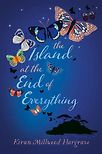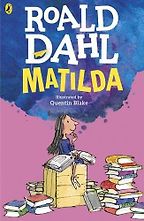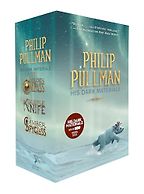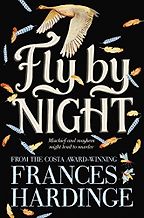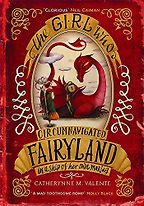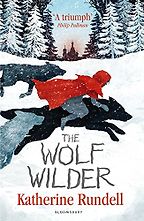I’m intrigued by the theme of “fierce girls” and I was excited when you suggested it. Tell me what this means to you.
In many of the classic children’s books, the girls who get to lead the action – the cool girls like George in the Famous Five (I love Five Go to Kirin Island, for obvious reasons) – were heroes because they were very tomboyish. I also loved books like Sophie’s Tom, and again these girls were all tomboys. It wasn’t until I was a little older that I started to find, or become aware of, characters that weren’t “one of the boys” – that were strong and fierce and yet were girls. They weren’t trying to display masculine characteristics, and they weren’t particularly brave or active. I wasn’t particularly brave or active as a child, I was a complete bookworm. So, while I loved characters like Sophie from the Dick King-Smith books and George from Famous Five, I wasn’t that girl. So, I was constantly looking for the girl I was, who wasn’t portrayed as just pretty or as less-than because she was “girly” to use the most obvious word.
“I wanted to reclaim that label and make sure it includes girls whose strengths are not necessarily masculine traits”
Part of the reason for this list is that I wanted to reclaim the term “fierce”. There are characters in my list that are brave and bolshy and go-for-it, but also characters like Matilda who is a bookworm and that is, in many ways, her power. I have included characters like Mosca Mye in Fly By Night who, though sometimes bolshy, uses words as her superpower. I wanted to reclaim that label and make sure it includes girls whose strengths are not necessarily masculine traits.
Goodnight Stories for Rebel Girls and Brazen: Rebel Ladies Who Rocked The World – have both been immensely popular books because they offer their readers a range of role models from real life to look up to. Many of the women in these books could be described as “fierce”. In both non-fiction and fiction we absorb the characters we meet, they become important, even influential, in our lives, don’t they?
I don’t know a book lover, male or female, who didn’t read Matilda and believe that they too could have magical powers because they loved books so much.
In your own books, The Island at the End of the World and Girl of Ink and Stars, would you consider the main characters, Ami and Isabella, fierce girls?
Yes, completely. I think Ami is very fierce. She draws all her ferocity and all her bravery from what we would traditionally see as soft traits. Her greatest strength is her kindness and her ability to accept people as they are. What gives her strength is her ability to be kind. When we talk about bravery we often imagine that means fearless, but if you are fearless you are not brave because there is nothing for you to be scared of. Whereas, if you are scared but take action anyway then you are brave. That is the sort of courage I wanted Ami to have. She is terrified but she loves her mother so much that she must undertake this dangerous journey. She is braver than Isabella in The Girl of Ink and Stars, my earlier book. Isabella is, in many ways, quite a selfish character and she is always thinking, what’s in it for me? She wants her life to be bigger. Ami just wants the people in her life to be happy. I think that’s an admirable quality. She has peace with herself.
Shall we begin by talking about your first choice, Matilda by Roald Dahl?
Matilda was my first book-hugger book. It was a book I would clutch to me and reread because I wanted it to become physically part of myself. I so recognized this feeling of being isolated. You can find your best friends in books. I was bullied at school because I was quite overweight and I had a mole on my face. These things marked me out as “different”. Also, I loved to read so I’d take myself off to the library, like Matilda did, and get the books off the adult shelves. Then I discovered Matilda who was also doing these things and had the most marvellous revenge on an awful woman.
Reading this book, there was an enactment of what I hoped would eventually happen to me. And, being an author is rather like having magical powers. I can use those bullies and put them into books – and have my revenge on them that way! It is a book I find I can reread. It’s not just a book about Matilda, this wonderful heroine, it is also what Roald Dahl says about reading and imagination and books being like ships, books being like lights. In another writer’s hands these ideas could seem sentimental but with Roald Dahl, who is never sentimental and who is always on that edge of danger and always has his characters on those edges of danger, there is never any sense of sentiment.
Next you’ve chosen Northern Lights by Philip Pullman, the first book in His Dark Materials trilogy. The fierce girl is called Lyra Silvertongue.
This is one of my favourite books. Lyra feels like a natural successor to Matilda. She is a character of action. She isn’t sitting in a corner reading. She is out there and she is having a real effect on her story. She isn’t being buffeted by forces and having to rebel against them, she is out there actively seeking an adventure. I read this when I was eleven and starting secondary school.
I remember her really sticking with me not least because she lies so much. Much has been said about her name Lyra and the word lyre. I used to lie quite compulsively, I think bookish people often do. I know it is quite common, children lie. I used to tell really silly ones that I was always going to be caught out with like “we’re moving to Australia”. So, I think this is a valuable thing for a child to see. One of the great things about Pullman is that he never idealises children. They are allowed to be what they are. Children are incredibly cruel, clever, devious, they hate getting into trouble and will lie to get out of it. Pullman presents all that with such love and admiration and that’s what I think makes him such an appealing writer and what makes Lyra such an appealing character.
“One of the great things about Pullman is that he never idealises children. They are allowed to be what they are”
Joan Aiken and Diana Wynne Jones also wrote brilliant heroines before Northern Lights, but I do feel that Lyra is unique in heralding the first rebel girl in literature and for being so celebrated for this by the author. Aside from the incredible settings and the wild adventures, what I responded to was Lyra and the fact that she lied and those lies got her into trouble. Then she lied again to get out of trouble and this, consequentially, got her into even more trouble. I related to Lyra and saw a lot of hope in her growth.
I think reading this book was a step towards my becoming more self-critical as a person, to be presented with a character that was so flawed and yet I loved her so much. This character is flawed and yet is still worthy of attention. When you are young you don’t spend much time reflecting on your actions. This is perhaps why teenage years are such a shock because suddenly all you can think about is, “oh god what did I say, what did I do?”
Next you’ve chosen Fly By Night by Frances Hardinge and the character Mosca Mye.
I nearly chose The Lie Tree. But Faith is not fierce and she didn’t sit as comfortably amongst the other girls I’ve chosen. But I needed to have a Frances Hardinge book – I think it gets harder to find, as you get older, books to fall in love with. Like it gets harder to make friends. Discovering Frances Hardinge was a really exciting moment for me.
Get the weekly Five Books newsletter
There is a nice line drawn between Matilda and Mosca Mye because their powers are that they can read. Unlike Matilda, where the words go inside her and strengthen her core and the power that comes out is from her mind, with Mosca the words themselves are her weapons. She wields them in such a fantastic way. The celebration of swearing for example, when Eponymous Clent and Mosca first have a big argument. They go at each other with all the crudest words they know and this ends with more refined swearing. The sheer luxuriating in words for the fun of it.
“There is a nice line drawn between Matilda and Mosca Mye because their powers are that they can read”
My choices are very much for people like me, people who are already in love with words. I hope people wouldn’t be put off by this, because this is an amazing book. Mosca Mye can use words fiercely and she can effect change by using her words. She also has a goose called “Saracen” which is brilliant. This book says, ‘Look how powerful words are and how dangerous it can be when they fall into the wrong hands. And how wonderful they can be when they are liberated.’ I learned a load of new words too!
Your fourth choice is The Girl Who Circumnavigated Fairyland by Catherynne M Valente
This book was a real revelation to me. September is more of an Alice in Wonderland figure. She isn’t the agent for change, she has stepped into this world and she is the vehicle through which we see this world. What she is, is incredibly funny. And funny in a way that children often are in that they don’t want to be funny, they want to be taken seriously. It’s a huge source of frustration to her that she isn’t taken seriously. And as the reader you are complicit in this. I laughed out loud on every page of this book.
“September is the polar opposite of some of the other fierce girls I’ve picked”
I love how Catherynne Valente updated Alice and gave her such high stakes and the impact that this has on her. September isn’t a bold girl but her desire to have adventures drives her on. By the end of the series she is a queen, so she definitely grows. The book is incredibly inventive. September stands apart from other girls I’ve read about, she is in many ways so ordinary and so powerless. The polar opposite of some of the other fierce girls I’ve picked. She is a sort of cipher in the book.
What would be her fierce quality? What would make her fierce?
I suppose it is that she keeps going. And often that is all we can do. Keep getting up, keep going to school, keep doing homework, keep facing the bullies. It’s not tremendously glamorous but sometimes surviving is enough and September is a real survivor. I hope I’m not making the book sound dull.
It is a terrifically funny book. I think that’s clear.
The adventure happens to September rather than her affecting the adventure.
Your final book choice is The Wolf Wilder by Katherine Rundell and the fierce girl here is Feodora.
Feo is much closer to the Lyra ilk than to a girl like September. The opening line says it all, “Once upon a time there was a dark and stormy girl.”
From the moment it begins, you know what you are getting. Not to say that Rundell hasn’t created a complex and likable character but she felt a completely compelling character as soon as I started to read this book. That’s such an achievement. Feo is very Lyraesque – she feels very contemporary, like a girl of now constrained by the time of then. She has something to say. Feo is extraordinary, possibly the most extraordinary of any of the girls on my list, particularly with her ability to survive in such a brutal landscape.
“Feo is an unashamedly idealised heroic girl”
Katherine Rundell has talked about the image that inspired her to write this book, the image of a young girl riding a wolf into Red Square. And that image runs right the way through the book. Feo has this immensely heroic heart. She is never less than a girl who rides a wolf. Some of the other characters I’ve chosen, while fierce in their own specific ways, grow throughout their adventures and their books, they make mistakes, they learn. Whereas with Feo, she is such an incredible heroine from the beginning, and it’s great to have these aspirational heroines who are so mightily impressive, in amongst all those people you can more easily relate to. That’s what I love about Feo. Rundell’s heroines are all very different. But Feo is an unashamedly idealised heroic girl. Books like Goodnight Stories for Rebel Girls are popularising that there are many different ways for women and girls to be strong, and be as strong as they need to be. I enjoy books that celebrate idealised strength as well and Feo really embodies this.
Katherine Rundell’s writing is extraordinarily good.
It’s the perfect book to give to people who don’t read children’s books. Like Joan Aiken there is this warmth and she is never talking down to the reader. I admire the standard she has set for writers of my generation.
Interview by Zoe Greaves
May 9, 2018. Updated: October 3, 2023
Five Books aims to keep its book recommendations and interviews up to date. If you are the interviewee and would like to update your choice of books (or even just what you say about them) please email us at [email protected]
Five Books interviews are expensive to produce. If you've enjoyed this interview, please support us by donating a small amount.

